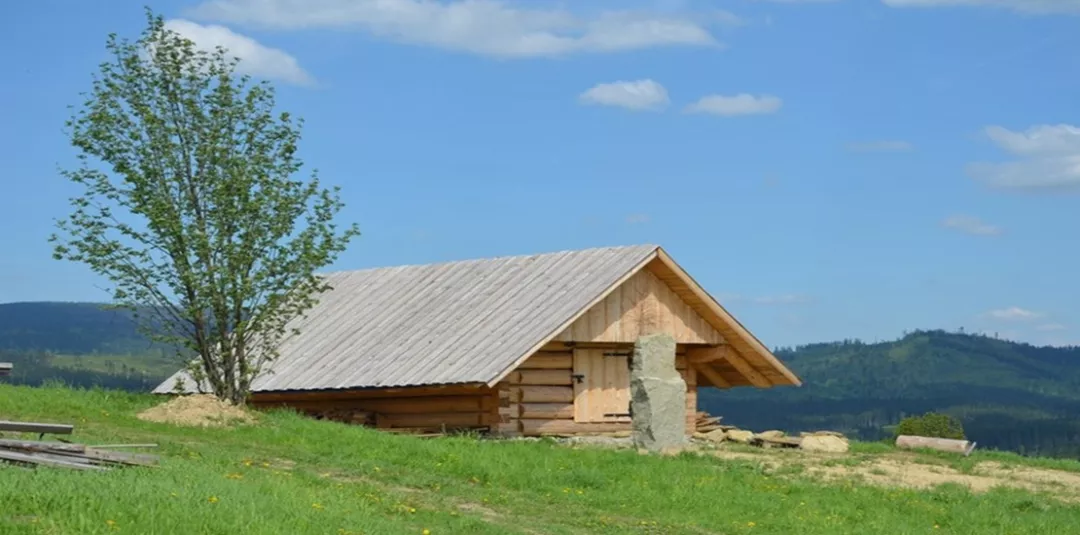Inspirational idea: Sheep grazing making a come-back for the restoration of mountain areas in Poland
- Innovation, knowledge exchange & EIP-AGRI
- Agricultural Productivity
- Fostering Knowledge & Innovation
- Rural Development
A local programme in the south of Poland is supporting the management of abandoned lands and is increasing biodiversity through the promotion of traditional methods of raising livestock.

In the Silesian and Żywiecki Beskid mountains near Krakow, Poland, grazing sheep had been a traditional practice for centuries. However, during the 1990s and early 2000s, shepherding faced a significant decline. Profitability and attractiveness for this sector had reduced and climate conditions were difficult for farmers, particularly in these mountain areas where winters are very long and the terrain difficult to manage. As grazing declined, the lands were abandoned, which resulted in their degradation and loss of biodiversity. The actual land characteristics also changed as pastures, meadows and mountain clearings disappeared. These changes to traditional pastoralism had knock-on effects for the local economy and tourism. Festivals and other traditions linked to the shepherding calendar were gradually forgotten. Robert Karpeta from Silesian local government says: “Our cultural heritage and identity was disappearing. We were losing the legacy related to mountain management and that our ancestors left us.”
Faced with these issues, the Silesian local government decided to set up a programme in 2006 called ‘Owca Plus’ (‘Sheep Plus’). Robert Karpeta explains: “It began as a pilot programme to boost economic activity and preserve local cultural heritage. The concept has grown and developed over the years through several subsequent programmes, the most recent of which will run until 2027.”
Covering the Beskid Mountains and the Kraków-Częstochowa Upland region, Sheep Plus aims to protect nature, biodiversity and the landscape by restoring the pastoral economy by bringing sheep grazing back. It is about the recovery of former agricultural pastures and meadows with a multi-purpose objective and a new business model for the area.
Sheep Plus is funded by the Silesian local government. Each year an open call is organised, two non-profit organisations are selected and they sub-contract farmers who bring their animals to the region as part of the programme. The farmers must follow animal welfare standards and keep their animals on the dedicated area throughout the entire grazing period from the end of April to September. Robert Karpeta says: “Throughout the season, the programme analyses the impact of grazing on the land and the environment. We want to preserve the particularly valuable natural habitats within these grazing areas and create a positive impact on biodiversity in general.”
Sheep Plus emphasises native animal breeds including Polish mountain sheep, Olkuska sheep and Wrzosówka sheep, which are the most adapted to local conditions, difficult mountain areas, steep slopes and temperature differences, while also having greater resistance to diseases.
The programme also involves the restoration or reconstruction of pastoral infrastructure in the region of 35 wooden shepherd’s huts and several wooden watering holes for the animals. A ‘Beskid Shepherds' Trail’ has recently been created where tourists can visit the traditional architecture and learn about life as a shepherd. A noticeable increase in tourism has been identified thanks to agricultural activity.
Robert Karpeta says “as part of the programme it has also been important to promote shepherding culture". An annual competition organised by the programme awards sheep farmers who have implemented initiatives and techniques to protect nature and the landscape. They have produced publications on the mountain culture. Shepherd’s fairs and festivals are organised to boost high-quality sheep products and other traditional crafts. Sheep Plus also promotes other related traditional skills such as working with sheep’s wool and making cheese. Robert continues: “Furthermore, thanks to the programme, the profession of shepherd was officially recognised in Poland in 2010 under the labour law.”
Robert says: “There is still a long way to go to ensure stability for shepherds in these marginalised mountain areas in terms of access to funding and support.” But the numbers of sheep now grazing in the area have increased, there are now almost 50 farmers involved in the programme, and Robert continues: “Conditions have been improved for shepherds and the local economy in general has taken an upturn. There have also been many positive impacts on the environment.
For more information:
- Karpeta Robert robert.karpeta@slaskie.pl